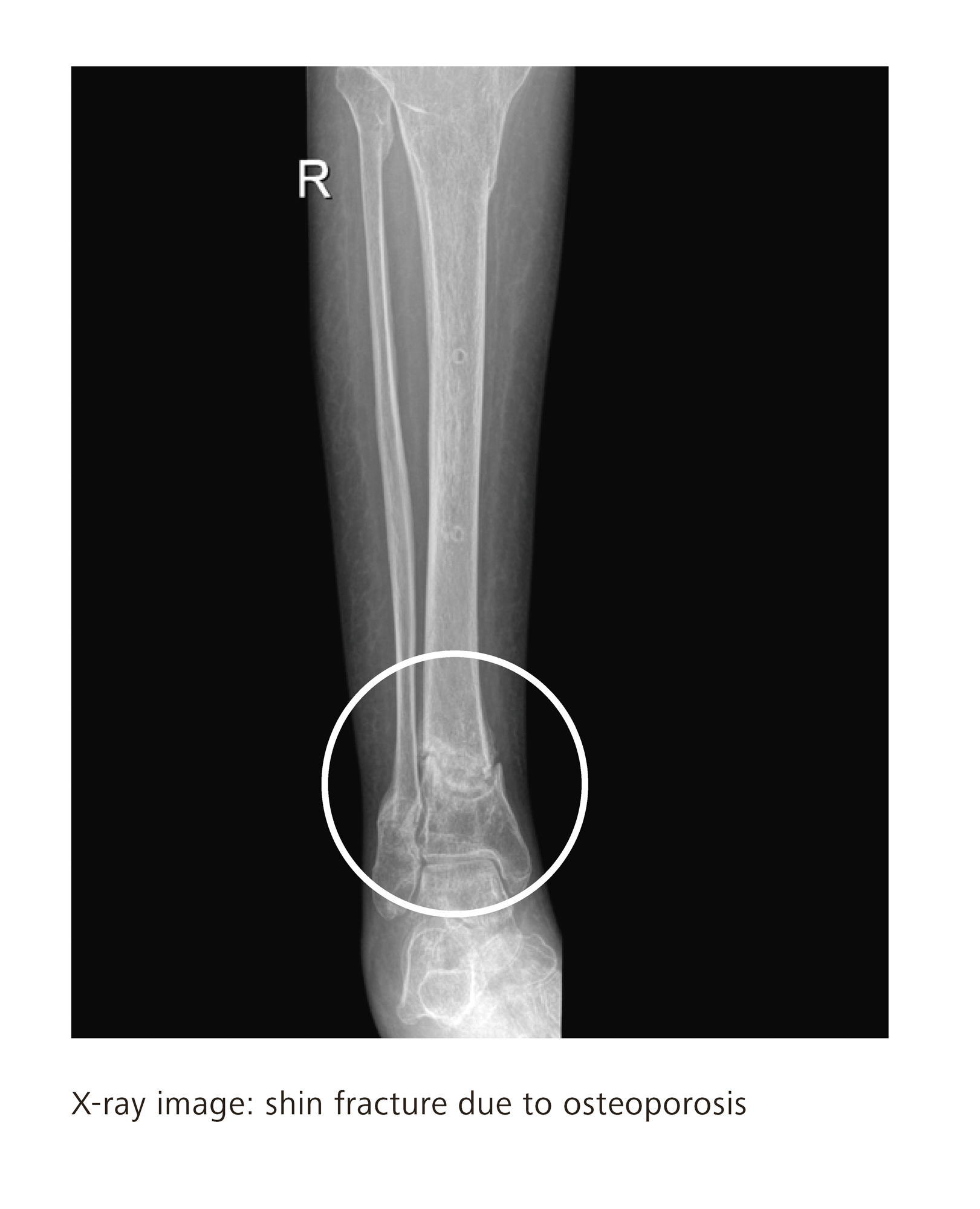
- 1 minutes to read
- 30 July 2019
What is osteoporosis?
Osteoporosis is a disease of the skeleton which leads to a reduction in bone mineral density, as well as to a change in the micro-architecture of the bone. As a consequence of that, the strength of the bone affected is much reduced, creating the possibility of broken bones when exposed to only minimal force during your normal routine.
What may be the causes?
In addition to factors such as hormonal changes (e.g. in women during their menopause), paralysis-specific metabolic changes, increasing age or malnutrition, immobilisation is also a risk factor for developing osteoporosis. This is why people with complete motor paralysis are particularly affected by osteoporosis. These people can start to develop osteoporosis shortly after paralysis occurs. The decomposition of the bone occurs below the level of the lesion and is mainly localised in the paralysed arms and /or legs. For instance, the bone mineral density in the shin-bone can be reduced by up to 70 % in the initial years after a spinal cord injury. The longer it has been since the spinal cord injury occurred and the greater the extent of the functional restriction, the greater the extent of the osteoporosis will be. Osteoporosis also occurs in young men and women with spinal cord injuries and is not exclusively found in older people who have suffered spinal cord injuries.
What should you do?
According to current medical expertise, the development of osteoporosis can only be influenced to a limited extent. Nonetheless, the following steps should be incorporated into your daily routine as a means of treating or preventing osteoporosis.
- A balanced diet, rich in calcium
- If there is a proven vitamin D deficiency, adequate vitamin D substitution
- Physical and sporting activity, if possible outdoors (sunlight)
- Targeted support through functional electrical stimulation
- Where osteoporosis is known to be particularly serious, the person affected may need to take special medication following individual advice by a GP or by a specialist.


Be the first to comment!